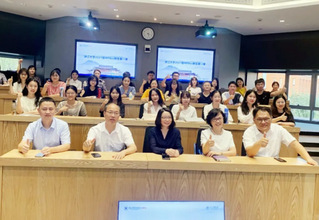时间:2025年5月9日(周五)9:30-11:30
地点:浙大管院A215会议室
主题:Convex value functions and investors’ processing of earnings news: How information integration costs impede market efficiency
主讲人:张国昌教授,香港大学
主持人:董望教授,浙江大学管理学院
主持人简介:

Guochang Zhang is the Chung Hon-Dak Professor in Accounting at the University of Hong Kong. He previously held academic positions at the Hong Kong University of Science and Technology and The University of Waterloo, Canada. Professor Zhang conducts theoretical and empirical research to explore how firms’financial reporting information and voluntary disclosure affect the decisions of market investors and business managers, and how financial reporting standards should be designed to facilitate economic decision-making and resource allocation. His research interests include accounting-based valuation, economic consequences of corporate disclosure, earnings management, and design of financial reporting standards. He has published papers in top academic journals including Accounting Review, Contemporary Accounting Research, Journal of Accounting and Economics, Journal of Accounting Research, Review of Accounting Studies, and Management Science. His monograph “Accounting Information and Equity Valuation: Theory, Evidence, and Applications” has been used as teaching materials for doctoral and master programs and executive training. He previously served as an Associate Editor of European Accounting Review, a member of the Financial Reporting Standards Committee of the Hong Kong Institute of Certified Public Accountants, and an independent non-executive director of a listed company.
摘要:
Blankespoor et al. (2020) categorize information processing into three key stages: awareness, acquisition, and integration. This study delves into the role of information integration in hindering the assimilation of earnings news into stock prices. We employ real options-based valuation theory to develop our hypothesis, which predicts that equity value is a convex (vs. linear) function of earnings, with the degree of convexity depending on the firm’s ability to exploit real options. Using the quarterly earnings announcements of US firms over the period 1980-2022, we find evidence that investors display little ability to recognize the effect of valuation convexity in the initial days following earnings releases, and then they gradually distinguish between firms with high and low valuation convexity in ways predicted by theory, suggesting the slowness of information integration. Further analyses show that information integration is facilitated by the firm’s information transparency (proxied by firm size), investor attention (non-busy vs. busy days), analyst following, and institutional ownership. Evidence based on bond price reactions further strengthens our inference. The study provides fresh evidence on the role of information integration in affecting market efficiency.





